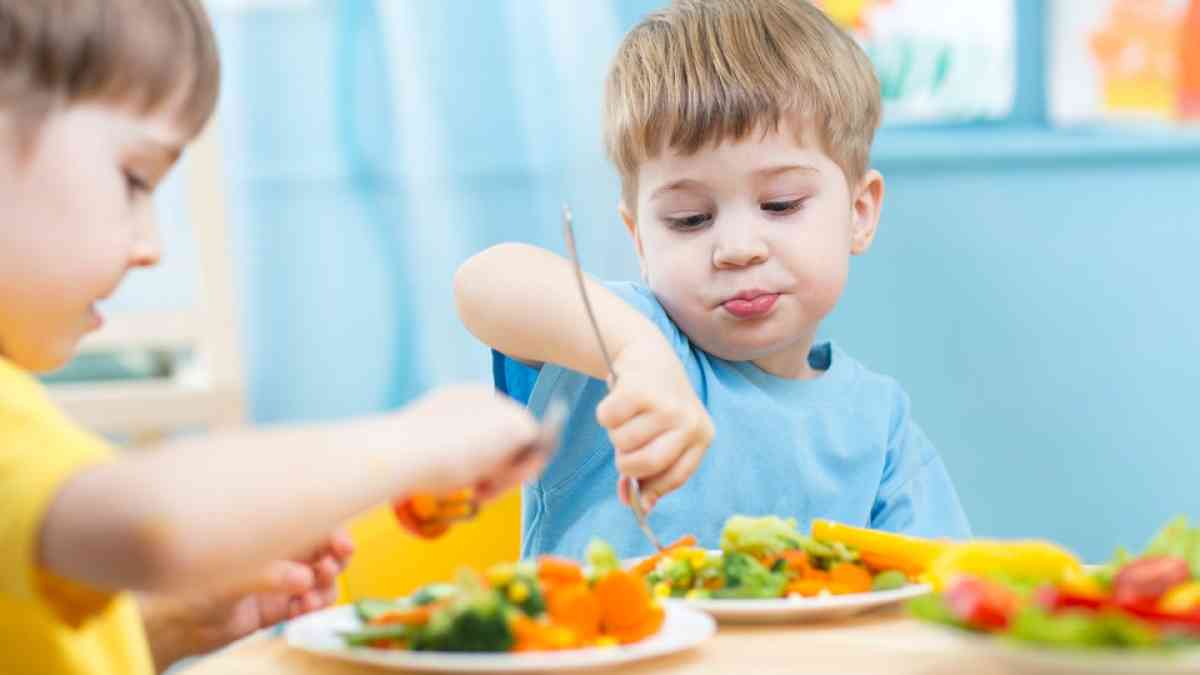
The organic food industry generated $26.7 billion in sales in 2010 and the category is poised to expand as more Americans jump on the health food bandwagon. The trend is being fueled by a desire to minimize exposure to harmful chemicals and additives in foods and for the goal of improving well-being by eating a nutritious diet. Unfortunately, parents who impose the desire for the latter onto their offspring may actually cause them to experience dental problems in the future.
It is no secret that the nation is struggling with an obesity epidemic and since 1980 the obesity levels have tripled in children and adolescents (https://www.cdc.gov/obesity/childhood/data.html). According the Centers for Disease Control and Prevention, 17 percent of children and adolescents between the ages of 2 to 19 are carrying too much weight for their own good. Many caregivers of the portly demographic of 12.5 million kids are well aware of the issue and have been trying to assist by providing their children with healthy snacks over alternatives such as soda, processed foods and candy. While the new choices may do wonders to help cap excess calories, some of the options may unwittingly contribute to conditions such as tooth decay and tooth erosion.
Bottled Water
For the past decade bottled water has been a booming segment in the beverage industry. Part of the sector grown can be attributed to caregivers who want to provide their children with a better beverage alternative to soda, as repeated consumption of that elixir is know to contribute to a myriad of health issues including obesity and for being incredibly tough on teeth. There is no arguing that water is devoid of the sugars, calories and chemicals that can contribute to health issues, but parents who choose to give their children bottled water may be putting their offspring at risk for getting cavities.
Annually Americans spend $15 billion dollars on bottled water, but those concerned about their child’s dental health are better off heading straight to the tap to provide their kids with a wholesome and refreshing thirst quencher. Since the 1960s, adding fluoride to community water sources has been a common public health policy as the compound has been scientifically proven to act as an effective dental treatment to ward off tooth decay and cavities, especially in developing children. Approximately 75 percent of the nation’s water supplies have been treated with fluoride. Individuals who opt to only give their kids bottled water are missing out on the fluoride benefit, considered to be the most effective public health measure preventing tooth decay.
Additionally, the bottle itself can cause additional problems. Children that are allowed to suck on the devices can end up with a malocclusion that can prevent them from properly speaking and may cost thousands of dollars in orthodontic work to repair. A sippy cup filled with clean, fresh tap water will not only save money, but help save your kids smiles.
Fruit Juices
Fruit juices are a delicious alternative to soda and 100 percent real fruit contains tons of nutrients, antioxidants and a 4-ounce serving is equal to one piece of fruit as defined by the government’s new Nutrition Place. Unfortunately, squeezed fruit is filled with concentrated levels of sugar and in the cases of citrus juices, tooth-eroding acids.
Drinking fruit juice will deposit trace amounts of sugar onto teeth. While a parent may not be able to detect the food source, oral bacteria can and will quickly get to work feasting on the sweet stuff. As they do, they bond together to form communities called dental plaque and produce an acid byproduct as part of their digestion process. When left unchecked the plaque and the acid will linger about, erode tooth enamel and lead to tooth decay and cavities.
Citrus juices may compound the problem. While packed with Vitamin C and other good stuff, citrus juices naturally contain high levels of citric acid. That acid is so strong it can wash away tooth enamel. Studies have shown that drinking a glass of OJ can reduce enamel hardness by 84 percent and can leave dental pulp and dentin vulnerable to tooth erosion (Eastman Institute for Oral Health, part of the University of Rochester Medical Center).
Fruit Leather and Dried Fruit
Aside from its’ natural state, fruit comes in many different forms and leather or dried are just two of the options. Parents who opt to give their children this sweet snack are providing them with a low calorie treat that packs a nutritional punch. However, fruit is this state is sticky and can adhere to teeth. When left unchecked, the stray food particles will provide a massive feast for oral bacteria.
It is important to note, that the food and beverages listed are better selections than processed drinks and sodas. Parents who are interested in providing their kids with these foods should:
- Talk to your dentist and let them know that you provide your children with bottled water. The dental service provider can choose to provide a fluoride treatment or recommend incorporating a fluoride toothpaste into your child’s oral hygiene regime.
- Regardless of the type of water consumed, parents are wise to provide their kids with a glassful after consuming fruit juices, leathers or dried fruit. Water will help neutralize harmful acids and can wash away trace elements of sugars and food particles.
- Bring your child to see a dentist regularly so they can implement preventative dentistry to minimize the odds of problems developing.
- Make sure your children’s oral health practices are appropriate for their age. A kids’ dentist or family dentist can alert parents to exactly what oral care behaviors should be implemented at any age.
Individuals looking to get on the dental care bandwagon for either themselves or their charges can find a dentist at WH Family Dental. The process is as simple as picking up the phone and calling now!




